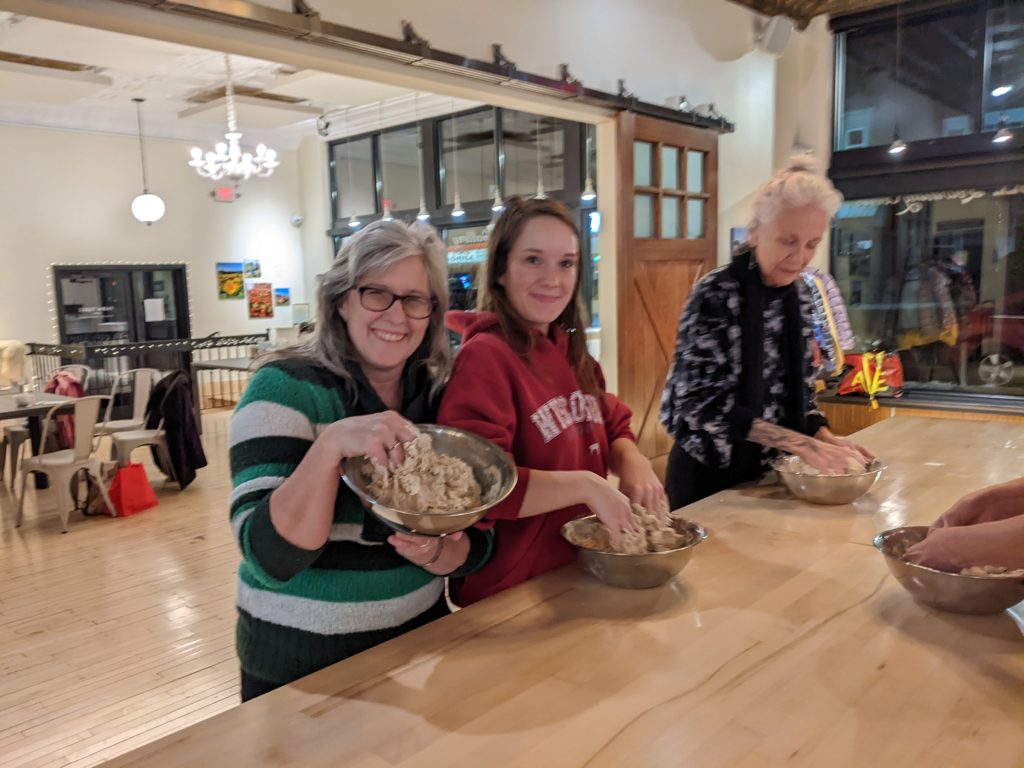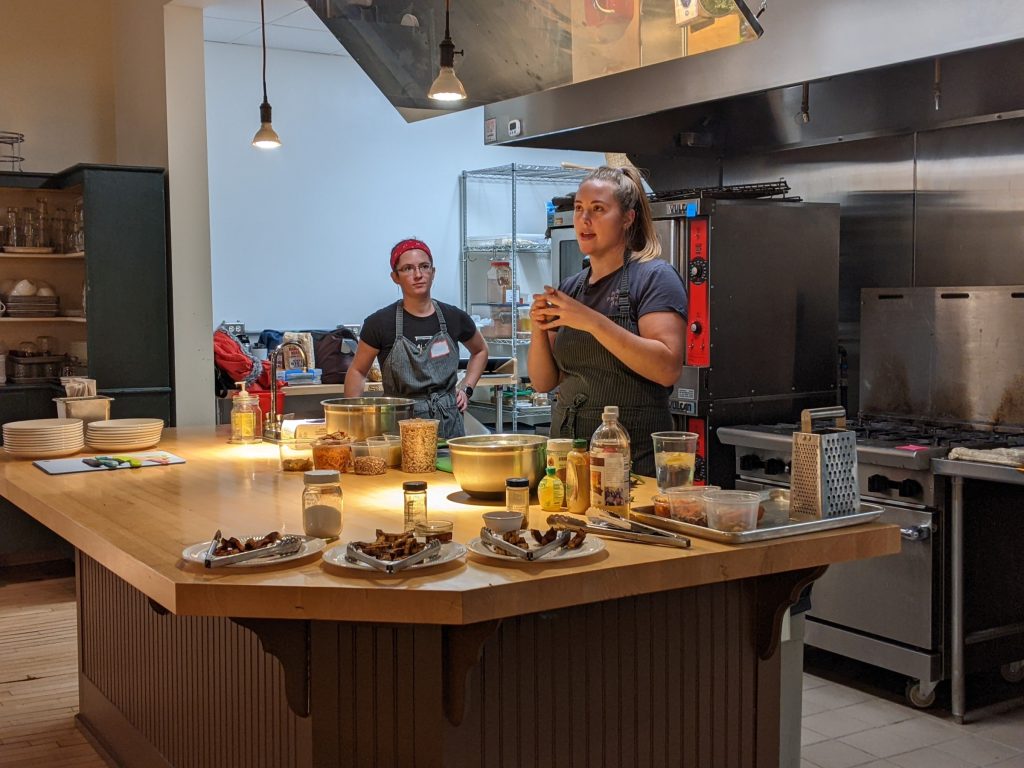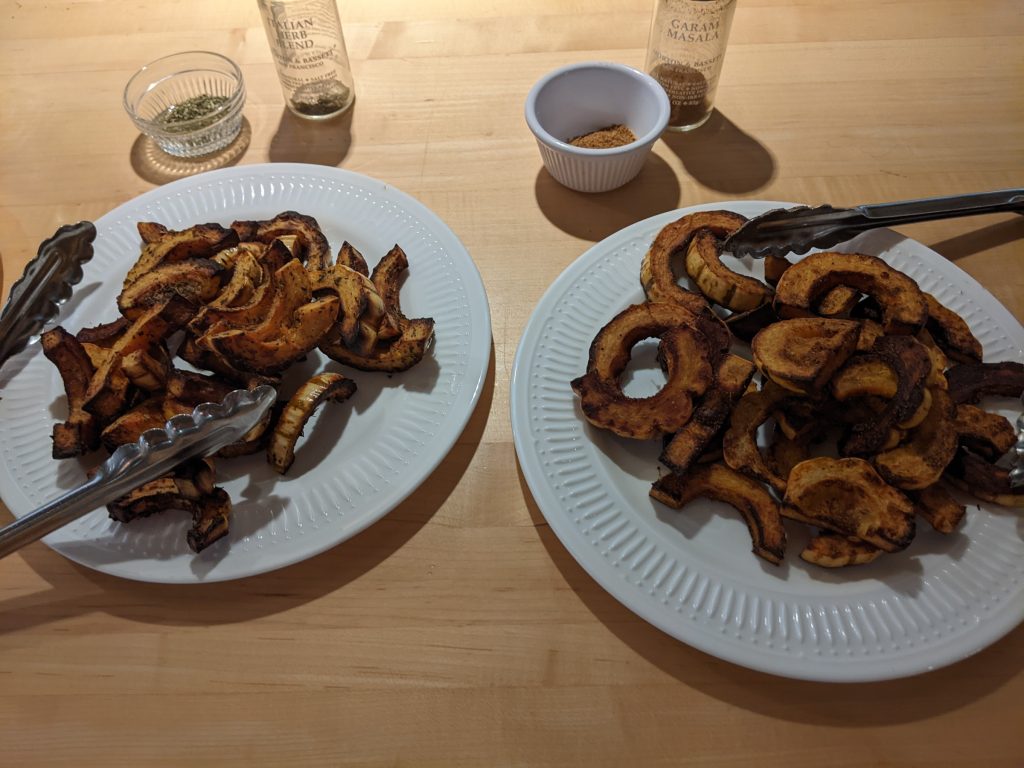In Polk county, Wisconsin, the SNAP-Ed funded program FoodWIse partners with the HealthPartners Amery Hospital and Clinic, and local farming and food nonprofit Farm Table Foundation, to pilot Eating Well In Recovery. The program blends Cooking Matters and Around the Table curricula to build skills while integrating trauma informed nutrition education to support participants in developing and sustaining healthy habits.
Situation
In Wisconsin’s Polk county, like much of the state, 9% of individuals experience food insecurity. When access to food is inconsistent or scarce, mealtimes can come with significant stress. Bringing attention to the widespread impacts that stress related to food access and eating experiences can have, the SNAP-Ed funded program FoodWIse coordinated training with Leah’s Pantry for educators and staff to learn about trauma-informed nutrition education practices using the Around the Table curriculum. This curriculum helps FoodWIse colleagues, who are a part of UW-Madison Division of Extension’s Health & Well-Being Institute, use educational practices that are rooted in empathy, build on the strengths that people offer, and recognize the healing power of strong community and cultural connections.
After Around the Table training, Polk County FoodWIse Coordinator Katie Bartko shared some of what she learned with Katy Ellefson, a dietitian and long-standing collaborator at HealthPartners Amery Hospital and Clinic. The pair wondered how they could better support individuals in recovery, from beginning through sustaining stages, with these nourishing and human-centered strategies.
Approach
When an individual is in an active period of substance use, their body’s ability to take in, absorb, and effectively use nutrients changes. And as a participant of Katie and Katy’s class Eating Well in Recovery said, an “important component that is usually missed is that quality nutrition especially when you are starting in recovery. It really assists in recovery to have a good diet.”
The foundations for Eating Well in Recovery worked to synthesize strengths of Cooking Matters, a program that builds cooking skills, alongside strategies from Around the Table. Working with Farm Table Foundation in Amery, the 5-session series welcomed 15 individuals in any stage of their recovery to join Katie, Katy and chefs Sarah Mittelstadt and Sal Daggett, cooking seasonal meals with available local produce. While eating these freshly prepared meals in community, participants explored mindfulness techniques and shared their histories with food, nutrition and eating.
With a grant from Amery Health and Wellness for elements of the Cooking Matters curriculum, participants received gas cards to help with transportation to and from classes, as well as weekly groceries needed to practice making recipes from the meal prepared together.
Outcomes & Continued Opportunities
Registration for Eating Well in Recovery filled almost immediately. Ten participants arrived for the first class, and all 10 returned for each 90-minute session. While Wisconsin’s early winter weather canceled one meeting, the November to December series proved its benefits. As Katie shared, “food is so important, and if you don’t feel competent it is just one more thing not going right.” With the skills, recipes and ingredients available, many participants had dishes they could share at gatherings. A dish with daikon radishes might be new to the table, and it could start conversations around gratitude and mindfulness. There was fellowship in recovery during the sessions, and a supportive community to spread those lessons out to family and friends.
Katie and Katy held two focus groups after this pilot group to learn more about individual experiences. Participants emphasized that “this class was about so much more than I thought! Not only did I learn about eating good food and how to prepare it, I learned about mindfulness around food, new preparation techniques in the kitchen, meal planning – and met an amazing array of recovering women!” Participants felt the investment of the chefs and facilitators in their individual growth. Alongside incentives like the gas cards and groceries, shared meals and knowledge-building supported participants’ commitments to attend each session.
While focus groups emphasized the value of cooking skills, they specifically lifted up the care that Eating Well in Recovery sessions offered: “this cooking class helped me to be a better person. It contributed a positive impact to my overall mental and emotional health…built a sense of trust in myself and others, purpose, belonging…I saw cooking as an act of patience, mindfulness, creative expression and communication.”
Recovery can be isolating as individuals move away from previous habits and behaviors. By welcoming participants, their full histories and experiences, the series helped create a framework for new patterns, and a community of support along the way.







